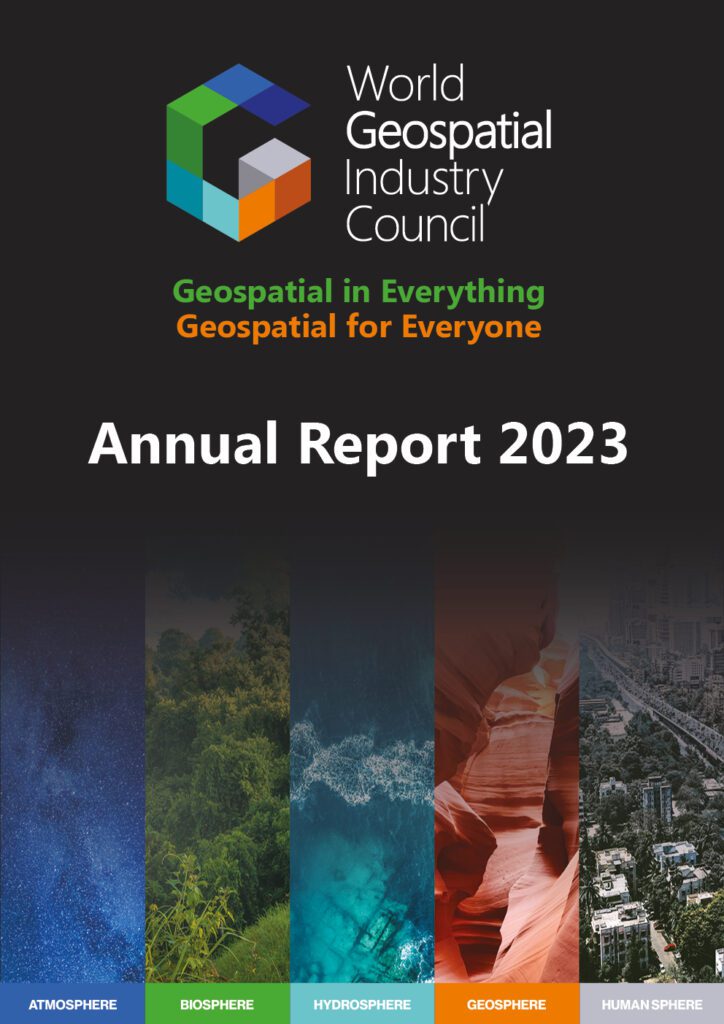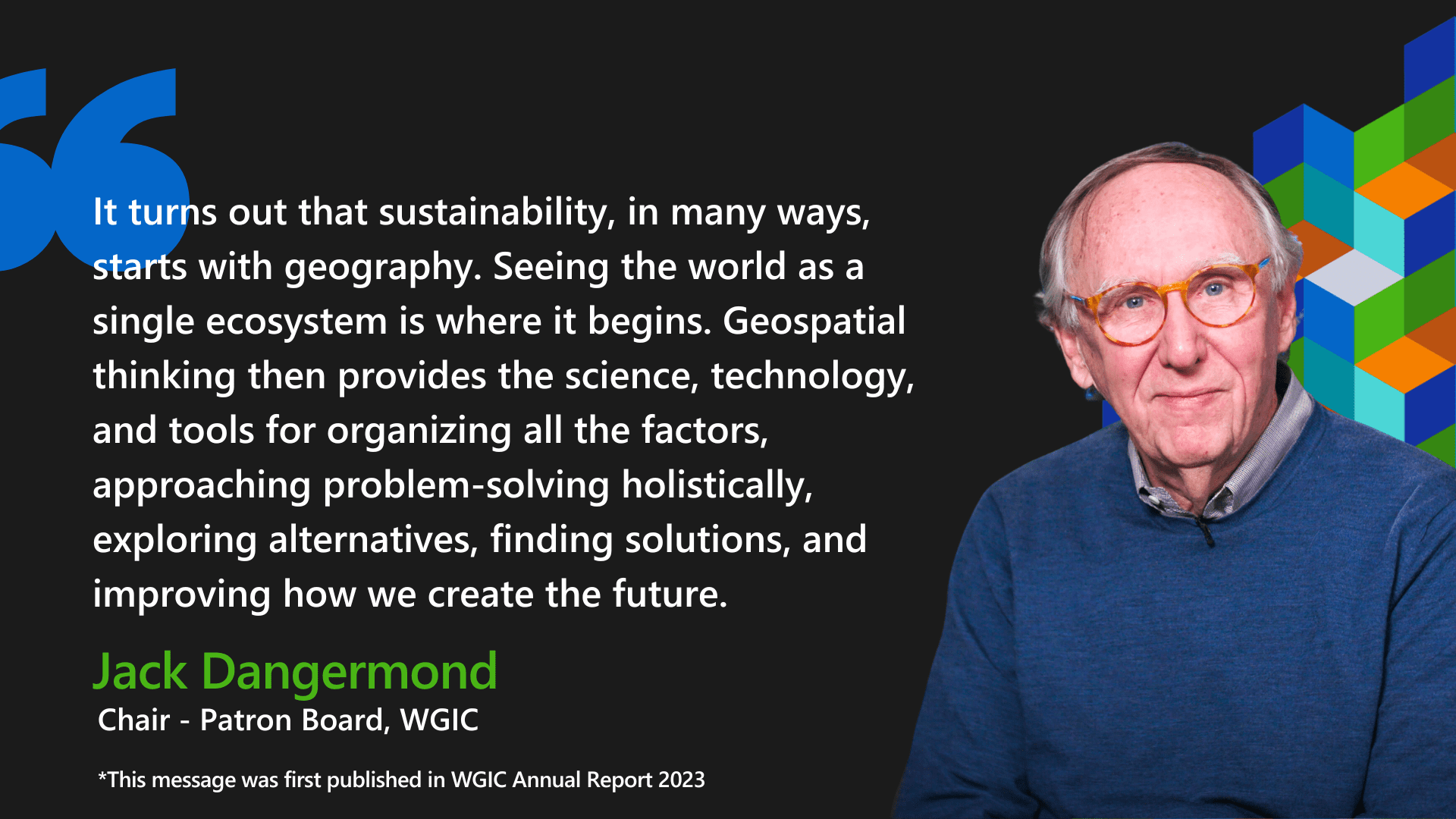As I reflect on the accomplishments of 2023, I applaud the members of WGIC for all their work demonstrating the value of geospatial technologies for society and the economy. WGIC’s work on leadership diversity in the geospatial community, the well-received report on emerging technology such as the Metaverse, and the deep engagement on climate at COP28 are significant. All these activities provide us with a much-needed voice.
Humans, as a species, have been highly successful. Especially since the dawn of the Industrial Revolution, we have leveraged science and technology to develop sophisticated transportation, communication, and urban infrastructure systems. Several economic sectors have become technology-led and even technology-intensive in just a few hundred years.
We have overcome many challenges, and as a result, our population has grown exponentially. Some people describe our present era as the Anthropocene Epoch, where our collective actions are substantially altering the Earth’s surface, atmosphere, and oceans.
Our world is being challenged; these challenges and human advancement are interrelated in some ways. Human-induced climate change is stimulating ecological instability, for instance. Humans are living recklessly, beyond our means, and this is not sustainable. We are living out of balance with nature, threatening our future.
Some say we may not even have a future.
But I believe humanity is at a point of choice, and humans will choose to stand up and create a sustainable future. We must take collective responsibility for imagining, designing, developing, and implementing solutions that sustain the planet. We need to move quickly; there is no time to fool around or for political polarization. We have little time to lose before the choice before us becomes Hobson’s choice.
It turns out that sustainability, in many ways, starts with geography. Seeing the world as a single ecosystem is where it begins. Geospatial thinking then provides the science, technology, and tools for organizing all the factors, approaching problem-solving holistically, exploring alternatives, finding solutions, and improving how we create the future. We need to take responsibility for it.
Talking about responsibility, nothing comes close to taking collective and coordinated action. I am proud that this has been the foundational spirit behind WGIC’s mission. With the expanding scope and relevance of Geospatial in Everything, Geospatial for Everyone, let us strengthen our shared commitment towards the planet more than ever.
I want to thank you personally for being my colleagues in the geospatial community and members of this wonderful organization known as the WGIC. My sense is our collective work, and particularly the innovations your organization is making, is advancing our civilization and the future of our world. Thank you for this.
Geospatial technologies and the efforts around them have become incredibly important and ultimately will be essential for creating a sustainable future.
*This message was first published in WGIC Annual Report 2023.

WGIC Annual Report 2023
In 2023, WGIC continued its efforts to promote the role and significance of the geospatial industry and its contribution to the global economy and society. WGIC participated in 45+ events to engage with policymakers, business leaders, and user communities to connect with the stakeholders, facilitate partnerships, and highlight the benefits of geospatial adoption to drive positive change.
Advocating for policies, WGIC released three reports including ‘Bringing Geospatial Context to the Metaverse,’ ‘Africa Geospatial PPPs,’ and ‘Leadership Diversity in Geospatial Industry.’ WGIC celebrated champions with the DEI Trailblazer Awards. WGIC also launched the #GeoActionAfrica project with AGFUND to tackle climate challenges. WGIC unveiled its new brand identity, symbolizing geospatial’s universal impact with our all-inclusive tagline: ‘Geospatial in Everything, Geospatial for Everyone.’


